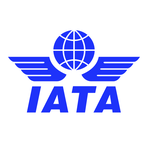Turbulent Skies: The Ongoing Crisis in Aircraft Deliveries
October 18, 2024, 10:25 pm

Location: Switzerland, Geneva
Employees: 1001-5000
Founded date: 1945

Location: United States, Illinois, Chicago
Employees: 10001+
Founded date: 1916
Total raised: $25.01B
The aviation industry is in a tailspin. Aircraft delivery delays from industry giants Airbus and Boeing are causing ripples across the globe. The head of the International Air Transport Association (IATA) recently voiced frustration over the situation. Airlines are feeling the pinch. Capacity constraints are tightening like a noose. The consequences are far-reaching.
Airlines are like ships at sea, navigating through turbulent waters. They rely on timely deliveries to keep their operations afloat. But the delays are akin to a storm that refuses to pass. Ryanair, one of Europe’s leading carriers, has already revised its passenger traffic estimates for the coming year. The forecast looks grim. The ripple effect is undeniable.
Airbus and Boeing are facing a perfect storm of challenges. Supply chain disruptions, labor shortages, and increased demand for air travel are colliding. These factors create a backlog that feels insurmountable. Airlines are left stranded, unable to meet the growing appetite for travel. The frustration is palpable.
In Dublin, the IATA chief expressed that the situation is "massively frustrating." This sentiment resonates with many in the industry. Airlines are like athletes, training hard for a race, only to find their gear delayed. They cannot compete effectively without the right tools. The delays are stalling growth and limiting capacity.
Meanwhile, Emirates is taking a different approach. The Dubai-based airline is expanding its fleet of Boeing 777F freighters. This move comes amid rising cargo trade. The demand for air freight is soaring, like a rocket breaking through the atmosphere. Emirates is positioning itself to capitalize on this trend. The order for more freighters signals confidence in the cargo market, even as passenger operations face headwinds.
The cargo sector is experiencing a renaissance. Global cargo yields saw a 12% increase in August, the highest in over two years. This surge is a beacon of hope in an otherwise cloudy sky. Airlines are pivoting, adapting to the changing landscape. They are like chameleons, shifting colors to survive.
However, the tensions between Emirates and Boeing linger. The delays in the 777X jetliner series have added fuel to the fire. Boeing announced that the delivery timeline for this new aircraft would slip to 2026. This news is a bitter pill for airlines waiting for the next generation of aircraft. It feels like a game of musical chairs, with fewer seats available as the music plays on.
The aviation industry is a complex web. Airlines, manufacturers, and regulators must work in harmony. When one strand falters, the entire structure is at risk. The delays from Airbus and Boeing are shaking the foundation. Airlines are left scrambling, trying to adjust their strategies on the fly.
As the industry grapples with these challenges, the future remains uncertain. Airlines are like tightrope walkers, balancing on a thin line. They must navigate delays while trying to meet customer expectations. The pressure is mounting. The stakes are high.
In the face of adversity, some airlines are finding ways to innovate. They are exploring alternative solutions, such as leasing aircraft or adjusting routes. Flexibility is key. The ability to pivot quickly can mean the difference between success and failure. Airlines must think outside the box to weather the storm.
The global travel landscape is shifting. As restrictions ease, demand for air travel is surging. Passengers are eager to take to the skies again. Airlines must be ready to respond. But with delivery delays, the ability to scale operations is hampered. It’s a race against time.
The IATA's concerns echo throughout the industry. The need for a robust supply chain has never been more critical. Manufacturers must streamline processes and enhance communication. Collaboration is essential. The industry must come together to find solutions.
In conclusion, the aviation industry is at a crossroads. Delivery delays from Airbus and Boeing are creating significant challenges. Airlines are feeling the impact, struggling to meet demand. Meanwhile, the cargo sector is thriving, offering a glimmer of hope. The future of air travel hinges on the ability to adapt and innovate. The skies may be turbulent now, but with resilience and creativity, the industry can navigate through the storm. The journey ahead will require teamwork, determination, and a willingness to embrace change. The clouds may be dark, but the sun will shine again.
Airlines are like ships at sea, navigating through turbulent waters. They rely on timely deliveries to keep their operations afloat. But the delays are akin to a storm that refuses to pass. Ryanair, one of Europe’s leading carriers, has already revised its passenger traffic estimates for the coming year. The forecast looks grim. The ripple effect is undeniable.
Airbus and Boeing are facing a perfect storm of challenges. Supply chain disruptions, labor shortages, and increased demand for air travel are colliding. These factors create a backlog that feels insurmountable. Airlines are left stranded, unable to meet the growing appetite for travel. The frustration is palpable.
In Dublin, the IATA chief expressed that the situation is "massively frustrating." This sentiment resonates with many in the industry. Airlines are like athletes, training hard for a race, only to find their gear delayed. They cannot compete effectively without the right tools. The delays are stalling growth and limiting capacity.
Meanwhile, Emirates is taking a different approach. The Dubai-based airline is expanding its fleet of Boeing 777F freighters. This move comes amid rising cargo trade. The demand for air freight is soaring, like a rocket breaking through the atmosphere. Emirates is positioning itself to capitalize on this trend. The order for more freighters signals confidence in the cargo market, even as passenger operations face headwinds.
The cargo sector is experiencing a renaissance. Global cargo yields saw a 12% increase in August, the highest in over two years. This surge is a beacon of hope in an otherwise cloudy sky. Airlines are pivoting, adapting to the changing landscape. They are like chameleons, shifting colors to survive.
However, the tensions between Emirates and Boeing linger. The delays in the 777X jetliner series have added fuel to the fire. Boeing announced that the delivery timeline for this new aircraft would slip to 2026. This news is a bitter pill for airlines waiting for the next generation of aircraft. It feels like a game of musical chairs, with fewer seats available as the music plays on.
The aviation industry is a complex web. Airlines, manufacturers, and regulators must work in harmony. When one strand falters, the entire structure is at risk. The delays from Airbus and Boeing are shaking the foundation. Airlines are left scrambling, trying to adjust their strategies on the fly.
As the industry grapples with these challenges, the future remains uncertain. Airlines are like tightrope walkers, balancing on a thin line. They must navigate delays while trying to meet customer expectations. The pressure is mounting. The stakes are high.
In the face of adversity, some airlines are finding ways to innovate. They are exploring alternative solutions, such as leasing aircraft or adjusting routes. Flexibility is key. The ability to pivot quickly can mean the difference between success and failure. Airlines must think outside the box to weather the storm.
The global travel landscape is shifting. As restrictions ease, demand for air travel is surging. Passengers are eager to take to the skies again. Airlines must be ready to respond. But with delivery delays, the ability to scale operations is hampered. It’s a race against time.
The IATA's concerns echo throughout the industry. The need for a robust supply chain has never been more critical. Manufacturers must streamline processes and enhance communication. Collaboration is essential. The industry must come together to find solutions.
In conclusion, the aviation industry is at a crossroads. Delivery delays from Airbus and Boeing are creating significant challenges. Airlines are feeling the impact, struggling to meet demand. Meanwhile, the cargo sector is thriving, offering a glimmer of hope. The future of air travel hinges on the ability to adapt and innovate. The skies may be turbulent now, but with resilience and creativity, the industry can navigate through the storm. The journey ahead will require teamwork, determination, and a willingness to embrace change. The clouds may be dark, but the sun will shine again.